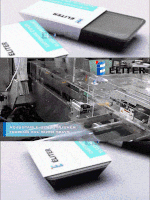Itene develops surface treatments that reduce the adhesion of materials
2023-01-03

The Itene technology center has developed surface treatments that reduce the adhesion of materials and make it possible to improve the emptying of plastic containers and prevent them from being stained, which contributes to improving their recyclability and reuse and reducing food waste.
These developments have been achieved in the Biosurfink 2022 project, which has been implemented this year with funding from the Ministry of Innovation, Universities, Science and Digital Society with the aim of developing a surface treatment by surface modification to obtain easy cleaning or self-cleaning solutions and easy emptying. This project has given continuity to Biosurfink, in which Itene researchers managed to reduce the adhesion of materials to surfaces to facilitate the emptying of containers, as well as easy cleaning and self-cleaning of surfaces.
The head of the project and head of Itene’s Additives, Printing Technologies and Functional Surfaces Unit, Jesús Palenzuela, explained that “reducing the layers of packaging materials or their thickness through surface modification technologies can help meet recycling objectives”. In addition, these technologies can facilitate the emptying and cleaning of containers, contributing to their reuse and also minimizing the waste of packaged food.
To this end, the researcher has detailed that through a chemical process – plasma-assisted chemical deposition – “we have worked with materials suitable for food contact to develop surfaces with high repellency properties”. In this way, it has been possible to obtain polyolefins with self-cleaning and/or easy cleaning properties for use in reusable transport boxes.
To verify the easy cleaning properties achieved, tests were carried out with graphic inks given their adhesion strength. Thus, it has been observed that a simple rubbing allows the stain to be removed, checking the easy cleaning properties achieved. The obtaining of the self-cleaning properties by applying squid ink on the modified surfaces has also been verified.
By means of the same surface treatment, Jesús Palenzuela has indicated that “we worked on cellulosic support to decrease the adhesion of fluids, achieving to increase the repellency of the paper suitable for food contact to water and oil”.
On the other hand, through wet treatments, PET (polyethylene terephthalate) was worked on to reduce the adhesion of viscous fluids, which has allowed to increase the repellency to water and oils of this plastic material.
These results have been disseminated through an online Tech Transfer Session organized by Itene on December 15, 2022 and are part of the lines of research carried out by this technological center to facilitate the emptying and recyclability and reuse of containers through surface modification.




